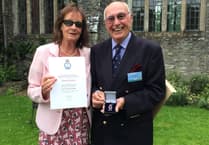I have lost count of the number of times I have asked either an individual or group I am working with to identify one of their own strengths or talents and the answer has been ‘I can’t think of one’. Or another variation of the same answer – ‘I don’t think I really have any.’
It always feels surprising to me how reticent human beings can be to recognise and feel proud of the things they are good at.
I have genuinely never met a single human being who has not been talented at something!
In fact, after a few more probing questions, people usually start to either discover or remember that they are talented at several different things.
Interestingly, there has been quite a bit of research which shows that a person who both recognises and is able to use their strengths has a higher chance of feeling happy and satisfied. In addition, usage of one’s own strengths is linked to wellbeing and resilience.
Recognising these links has led to a whole new philosophy within the therapeutic world. The strengths-based approach encourages us to use our personal assets to find solutions to problems. An additional advantage is that the process of therapy itself can become enjoyable rather than something to be suffered or endured.
In my view the conversations about strengths should start as early as possible. Children should be encouraged to recognise their skill-sets. Sometimes these can be easily spotted, such as the child who runs fast or sings particularly well. Other strengths though can often go unnoticed. For example it would be just as important to celebrate a child with a sense of fairness, one who is good at teamwork, a child who is kind to others or has a natural sense of gratitude.
Saddest of all are the conversations I sometimes have with people who are in middle age or older. Many have spent their whole lives feeling as though they are not really good at anything and it’s hardly surprising that this will have a very negative effect on their sense of self-esteem.
Recognising and owning your strengths is not about being arrogant or thinking that you are better than other people. It’s about being grateful for the things you are naturally good at and finding ways in which to utilise these strengths. People who feel able to use their strengths at work, for example, almost always feel a higher sense of job satisfaction than those who don’t.
If you are one of those people who find it hard to identify your own strengths and talents, try asking the people who know you best. You may be pleasantly surprised at what other people see in you and what you may have neglected to see in yourself.
If you find it too hard to ask others, think back to times when you have been given positive feedback about something. What were you praised for? What clues does this give you about what some of your strengths might be?
Once you give yourself permission to start recognising your own strengths – the next step is to think about ways in which to utilise them and to start fulfilling some of your untapped potential. This can be done anywhere - at work, within your family or in a volunteer role.
Whatever your situation, please don’t fall into the trap of assuming (like so many others) that you are one of the unlucky ones who simply doesn’t haven’t any skills, strengths or talents. Everyone has talents! So be brave, start recognising what they are and then go out and find a way to start fulfilling some of your potential.
Both you and the world will be a lot better for it!





Comments
This article has no comments yet. Be the first to leave a comment.